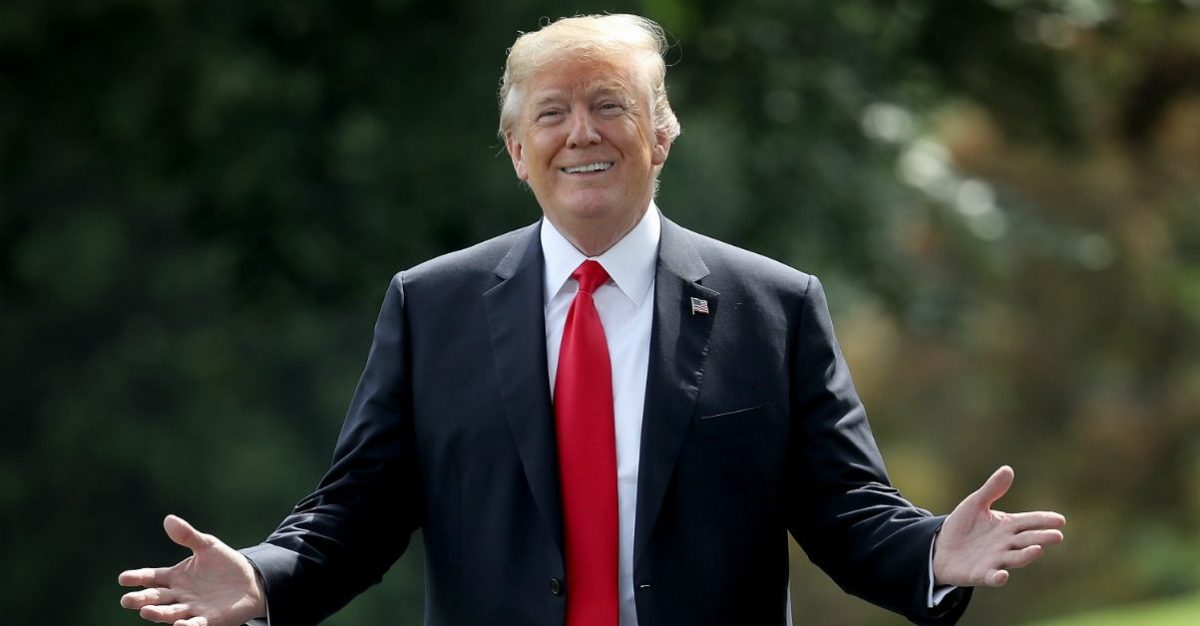
A federal court on Tuesday appeared largely unmoved by the arguments of two states accusing President Donald Trump of violating the U.S. Constitution’s various emoluments clauses via the operation of his downtown luxury hotel in the nation’s capital.
Attorneys for the District of Columbia and Maryland brought the lawsuit against Trump over the president’s Trump International Hotel in Washington, D.C.–a long-shot legal bid to find the 45th president in violation of those obscure provisions in the nation’s founding charter.
But what exactly such a ruling would mean in real terms was a bit fuzzy–even for those bringing the suit–and part of the various problems encountered by the plaintiffs during Tuesday’s hearing.
The three judge panel of the Fourth Circuit Court of Appeals–consisting of Judges Paul V. Niemeyer, A. Marvin Quattlebaum, Jr. and Dennis W. Shedd–grilled attorneys for D.C. and Maryland by asking what real-world application of law they were seeking by finding Trump in violation of the various emoluments clauses.
The attorneys didn’t really have much of answer–instead telegraphing their continued reliance on the court to define what “emolument” means so that said definition might guide the course of a legal remedy. One judge asked whether Trump divesting from the hotel or putting it into a blind trust might be the sort of relief sought.
According to the Washington Post‘s Ann Marimow, Washington D.C. Solicitor General Loren AliKhan said that divestment could be an “option” while pushing forward on the strategy of seeking a judicial definition beforehand. “My view is [an emolument] covers any profit, gain or advantage,” AliKhan argued before the skeptical court.
Stylized as D.C. and Maryland v. Trump, the lawsuit alleges Trump committed “unprecedented constitutional violations” by not removing himself from the business affairs of the D.C. hotel once taking office. The suit marks the first time a government entity has brought such litigation against a sitting president and relies almost entirely on novel–untested–constitutional issues.
Trump, through U.S. Department of Justice (DOJ) counsel, is seeking to have the 4th Circuit reverse a previous discovery order by arguing that Maryland and D.C. have no authority to scour the business interests and finances of a sitting president.
“The complaint rests on a host of novel and fundamentally flawed constitutional premises, and litigating the claims would entail intrusive discovery into the president’s personal financial affairs and the official actions of his Administration,” according to the DOJ’s brief.
U.S. District Judge Peter J. Messitte‘s previous order allowed the lawsuit to go forward–and authorized dozens of subpoenas–on the basis that the plaintiffs had demonstrated sufficient standing by showing potential injuries related to the hotel’s operation.
As Law&Crime reported at the time, Judge Messitte noted:
A large number of Maryland and District of Columbia residents are being affected and will continue to be affected when foreign and state governments choose to stay, host events, or dine at the Hotel rather than at comparable Maryland or District of Columbia establishments, in whole or in substantial part simply because of the president’s association with it.
The appeals court judges–all of whom were appointed by Republican presidents (including one recently appointed by Trump himself)–all but rubbished those concerns during oral arguments today.
According to the Washington Post‘s Jonathan O’Connell, the judges were generally unpersuaded that Trump’s D.C. hotel had actually resulted in any harm for either Maryland or the District itself. Rather the judges seemed to take exactly the opposite opinion.
One of the judges actually suggested that Trump could be benefiting D.C. and Maryland because of all the protesters who come to town and presumably stay at other hotels.
A ruling in Trump’s favor could delay discovery for months–or potentially halt discovery entirely by dismissing the case outright.
[image Win McNamee/Getty Images]